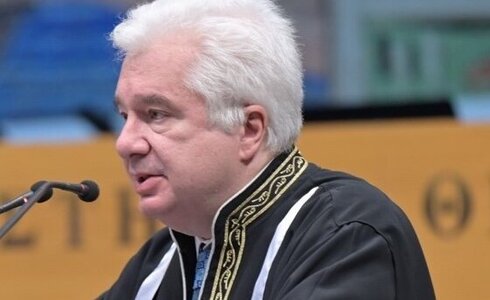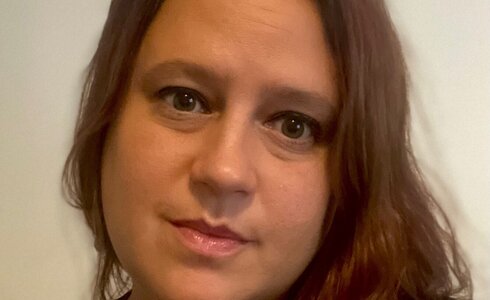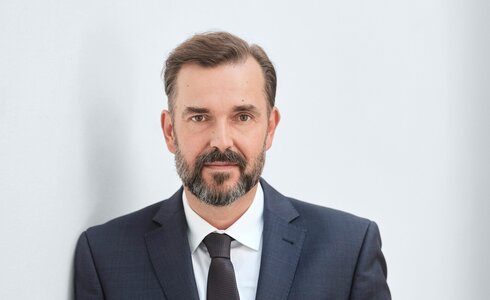The Dark Side of the New Media World – the End of Democracy?
Freedom, like love, is such a big word, probably because it touches the very foundations of our human existence. It’s a necessary condition of life and of innovation, a free space for experience that makes all other civilisational values possible in the first place.
Without that no serendipity will happen to enable innovation in a bright eco-system of ideas. Professor Timothy Snyder, whose book “On Tyranny” is a fervent appeal to millions of people around the world to fight for freedom, continued his tour de force of political philosophy this year with his latest œuvre “On Freedom” in which he reminds us all that freedom is more than just the absence of state power and interference.
We fall short if we consider freedom of thought and freedom of public expression, freedom from constraints, to be its full realisation. True freedom means the freedom to go and organise one's life according to one's own will, but in consideration of others.
Serious threat scenarios
It is due to the cosmic breadth of the global debate on freedom that we can only address a very narrow section in our newsletter. The major cultural shifts associated with the binary representation of the world, the daily digitalisation of millions of arguments on social media platforms and the recent arrival of machine-learning technologies in the form of generative artificial intelligence have not only created new playgrounds for education and the acquisition of global knowledge, but have also given rise to serious threat scenarios in the form of opportunistic politics and thus the dismantling of democratic structures.
In 2022, human rights lawyer Susie Alegre aptly identified the decline of liberal attitudes in her engaging and thought-provoking book “Freedom to Think”.
“With the technological revolution of recent years, our mental geography, our ‘state of mind’, has been eroded like a coastal corrosion caused by constant ocean swells. In our trade-offs with platform operators, we have lost sight of how easily our mobile phones have become a gateway for microtargeting by multi-million-dollar technology giants who influence how we think, feel and behave minute by minute. Every time we go online, we feed the algorithmic processes that filter our opportunities for work, finance and love.”
In a particularly moving interview with The Guardian, Alegre explained why she didn’t allow her daughter to use Alexa like her school friends: “The AI service steals your dreams and sells them.”
Meaningful islands of dialogue
The freedom of thought is one of the most intimate processes of human existence. It is a quiet and silent internal process that takes place individually, in a kind of dialogue with oneself. In this last, magical refuge, our internalised values are used to weigh up good and evil, even before thoughts can escape in poisoned language. What happens when we lose our autonomy here and, controlled by others, tip over into irreconcilable processes of public opinion exchange is something we experience anew every day to the point of unbearability.
We must learn once again to expand the digital corridor of opinion and open up meaningful islands of dialogue in which people – even in today's sometimes deeply divided society – can express their thoughts with integrity and respect. And we must learn to distinguish between the freedom of speech and the words of a speaker and the intellectual content conveyed. In her book “Dare to Speak”, the former CEO of PEN America, Suzanne Nossel, who is moving to Freedom House in January, made it very clear in 20 principles that all citizens, but especially public persons, have a responsibility to preserve free speech in all its cultural diversity.
Facing dark times
Unfortunately, we are facing dark times today with regard to freedom of thought, freedom of opinion in academic debates, the media as an essential transparency function for democracy and as a checking function of state power, as well as freedom of speech in literature, art and culture. With the incorporation of the originally African-American woke culture as an initiative for anti-racist justice by a minority, a morally motivated terror has spread from American universities that determines what can still be thought, researched and thus lead to innovation.
The resulting cancellation culture, with the exclusion of lecturers due to ideologically taboo topics and even the banning of academic readings, continues this creeping process of obstruction despite legal guarantees for academic freedom in almost all constitutions of Western democracies.
For the freedom of the word, the statement by the Indian-British poet Salman Rushdie in an interview with the Zurich Weltwoche after the imposition of the fatwa in February 1989 by the Iranian revolutionary leader Ayatollah Khomeini for blasphemy (“The Satanic Verses”) is of timeless beauty and accuracy: “One of the reasons for writing, I believe, is to enlarge the things that can be thought.
Discussing crucial aspects
We were once again able to attract three renowned authors for the topics “Freedom of Thought” and “Freedom of Expression”, which are crucial to our social future.
In his essay “Freedom of Expression – The Bare Essentials”, Filimon Peonidis, Professor of Moral and Political Philosophy at Aristotle University in Thessaloniki and author of the book “Philosophical Pespectives on Freedom of Expression”, gives us an insight into the basics of freedom of expression and justifiable limitations.
Carmen Isabel Grabuschnig, Lecturer in Political Science at the Université Paris I Panthéon Sorbonne, shows in her essay “Freedom of Expression: Threatened from within Democracy” how the freedom of expression in science, media, and literature is currently under threat.
And Clemens Pig, Managing Director of Austria Press Agency (APA), author of the book “Democracy Dies in Darkness – Fake News, Big Tech, AI, hat die Wa(h)re Nachricht eine Zukunft” (Democracy dies in the dark – Fake News, Big Tech, AI, does the real news have a future), explores in his essay “The Information Society of Tomorrow” the question of how the promises of artificial intelligence could be shaped in a cooperative media economy in favour of the public good.
As the head of a research organisation at the AIT, I have always placed people at the centre of developing security solutions in addition to our focus on the natural sciences. I am therefore aware that, particularly in our new research focus on disinformation, the close collaboration with the humanities and social sciences is of crucial importance.
As the person responsible for editing the OVE Newsletter on Information Technology with special focus on Social Media, I would also like to pass on this internal broadening of horizons to our readers with the intention and responsibility of providing information and education.
It only remains for me to wish you all an exciting read and many new insights.
Helmut Leopold and Wolfgang Grabuschnig, Editors of the OVE Newsletter on “Social Media”
Recommendations for further reading
- Susie Alegre, Freedom to Think. Protecting a Fundamental Human Right in The Digital Age, Atlantic Books; Reprint Edition (4. Juli 2023)
ISBN: 978-1-83895-155-9
- Suzanne Nossel, Dare to Speak. Defending Free Speech For All, Dey Street Books (28. Juli 2020)
ISBN: ISBN: 978-0-06-296603-2
- Timothy Snyder, On Freedom, Random House LLC US, 2024.
ISBN: 978-0-593-79904-8




